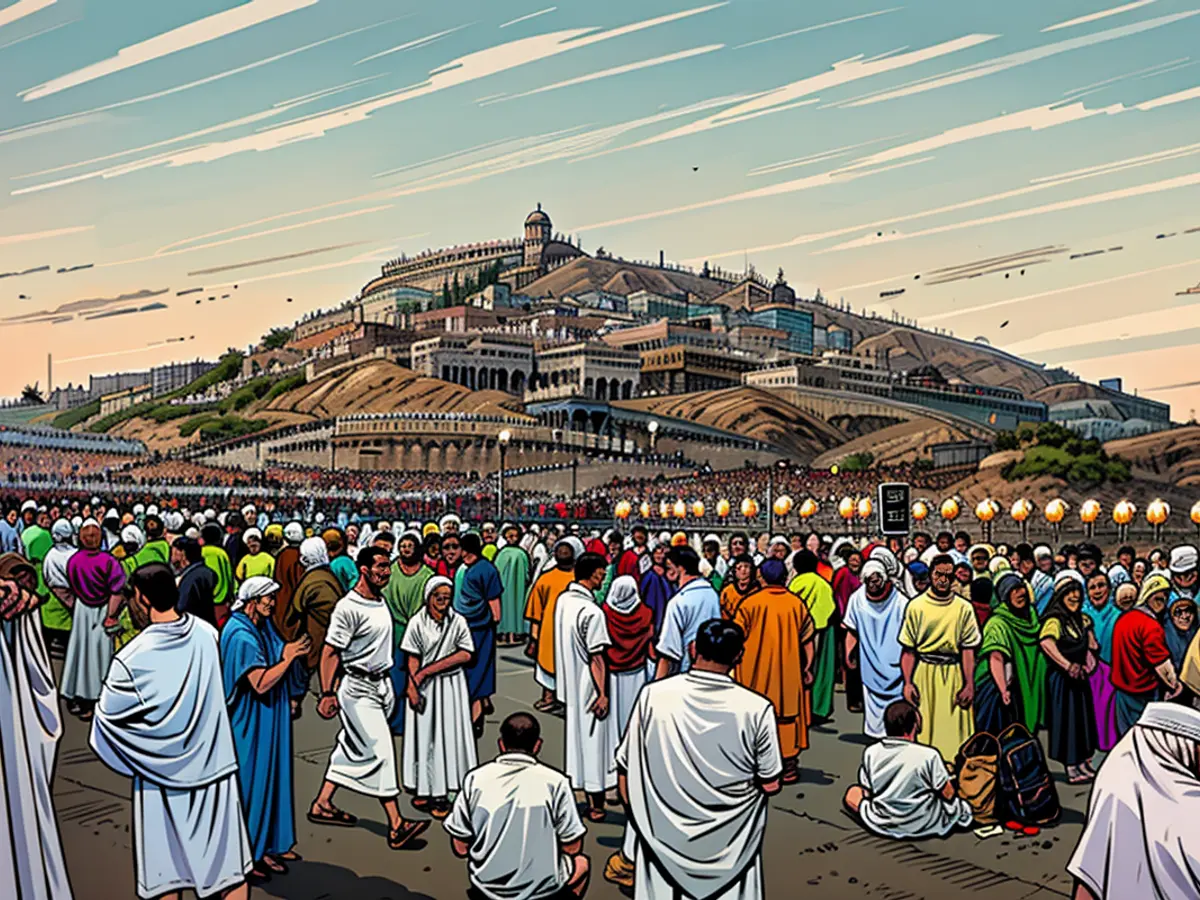"Daughter expresses relief as father is laid to rest in Mecca following Hajj heat tragedy"
Over 1,300 individuals lost their lives during this year's Hajj due to heat-related illnesses, as reported by Saudi authorities, after more than 1.8 million pilgrims participated in spite of life-threatening heat waves. At least 215 Indonesians are among the deceased, according to Indonesian officials.
Speaking to CNN on a Sunday, Heru Jumartiyah shared the heartbreaking news that her 86-year-old father, Ngatijo Wongso Sentono, passed away on June 17 in his tent in Mina, located southeast of Mecca, while waiting for afternoon prayers.
“He seemed healthy before, no signs of illness, they said,” she shared.
Sentono had registered for the Hajj in 2018 and made the Holy pilgrimage to Mecca with his 83-year-old spouse and neighbors from Yogyakarta, Indonesia, according to Jumartiyah.
“My father was excited to make the Hajj, he couldn’t wait,” she said.
Performing the Hajj is one of the five fundamental tenets of Islam, requiring every faithful and financially able individual to make a pilgrimage to Mecca at least once in their lifetime.
According to Islamic tradition, dying and being buried in Mecca is considered a blessing, with many believers making the journey in their twilight years after years of saving for the opportunity.
“We're thankful that he was buried in Mecca,” Jumartiyah said, expressing hopes to visit her father's grave during her own pilgrimage.
Jumartiyah's mother, Pariyem Prawirodinomo, is currently healthy and set to return to Indonesia on July 7.
Approximately 241,000 Indonesian pilgrims were scheduled to make the journey to Mecca this year, marking Indonesia's largest ever contingent.
Inevitably, most of the Indonesian fatalities this year were individuals aged over 50, according to data from the Indonesian Ministry of Religious Affairs.
Indonesia usually registers hundreds of deaths during each year's Hajj – 773 people died during last year's pilgrimage, according to ministry records.
‘I saw countless pilgrims collapse and die’
Severe heat has been identified as a primary cause behind the numerous deaths and injuries reported during this year's Hajj. Mecca – the holy city central to Hajj pilgrims – saw temperatures skyrocket to a record 125 degrees Fahrenheit (51 degrees Celsius) on a Monday.
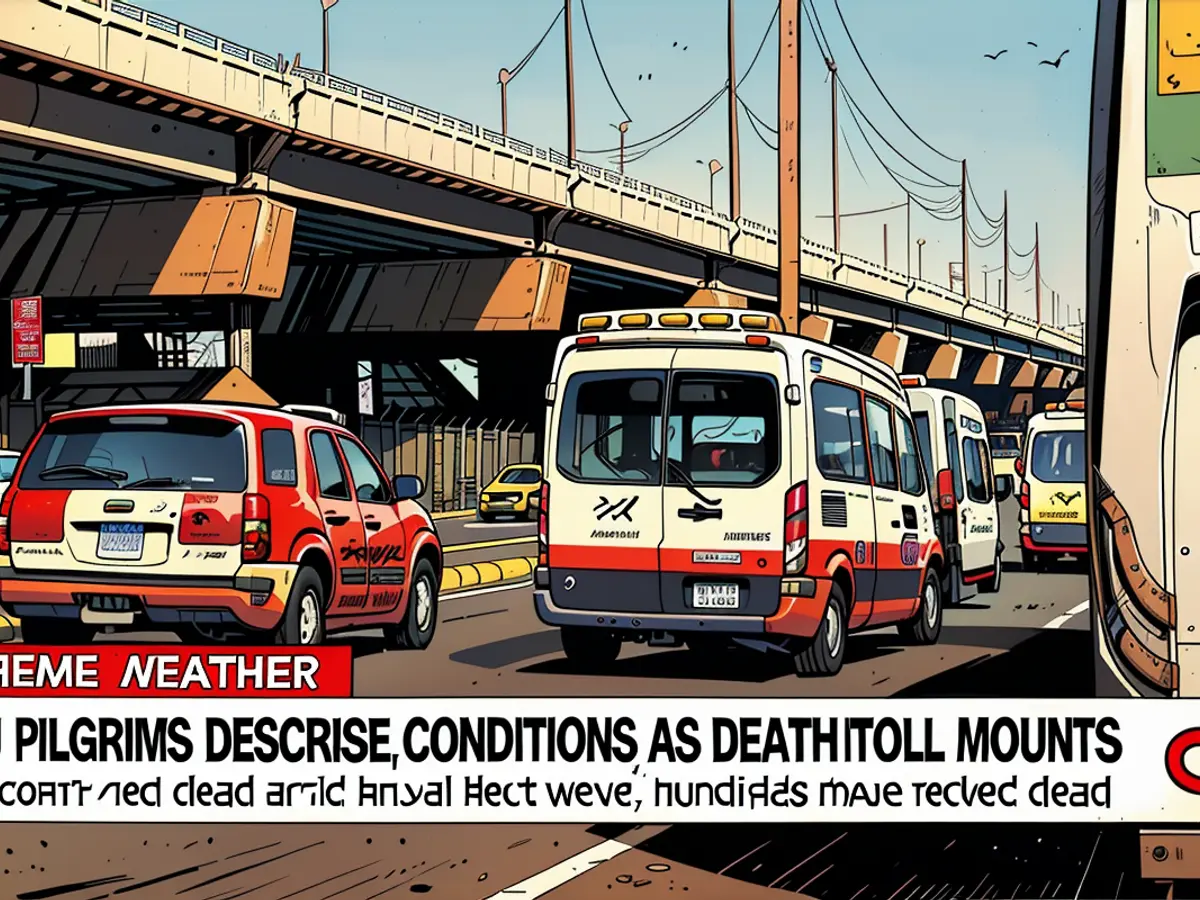
Numerous authorities have stated that the issues have been exacerbated by the multitude of unofficial pilgrimages, with Saudi officials reporting on a Sunday that unauthorized trips accounted for over four out of five of the fatalities.
Saudi Arabia mandates that each pilgrim must acquire one of the 1.8 million available licenses to legally access Mecca, at the cost of several thousand US dollars. Unlicensed pilgrims often lack access to organized tour buses with air conditioning,, easy access to water and food supplies.
During the pilgrimage, the faithful perform various rituals in and around the sacred city of Mecca, often entailing long walks in the blistering heat every day.
Some pilgrims have criticized the poor infrastructure and organization of this year's Hajj. Even pilgrims on official tours endure numerous hours of walking in the scorching heat.
Certain witnesses have told CNN that they witnessed hundreds of worshippers lose consciousness and pass away.
Ahmad, a 44-year-old Indonesian man who asked to remain anonymous, described seeing countless pilgrims perishing from the heat.
“While heading back home, I saw numerous pilgrims who had succumbed to the heat. There was a body covered in an ihrom (white fabric) cloth every few hundred meters,” he recounted.
“Each time there was a distribution of water from local residents or certain groups, it was immediately swarmed by the pilgrims,” he added, expressing concerns about the absence of medical professionals or ambulances along the route.
In recent years, the sheer volume of Hajj crowds has played a role in several unfortunate incidents during the pilgrimage, including a stampede that killed hundreds of individuals in 2015.
Experts, however, have cautioned that soaring temperatures present the gravest threat to pilgrims, as heat records continue to shatter in the Middle East, making large gatherings more perilous.
Climatologist and weather historian Maximiliano Herrera, who tracks extreme temperatures, informed CNN that desert temperatures in the region are warming at an unprecedented rate, with nighttime temperatures rising much faster than daytime temperatures. This undesirable development, Herrera said, was unheard of until a few decades ago.
“Nobody is safe from deadly heat and unfortunately, I am not shocked by this year's death toll,” Herrera stated.
“Spending time outdoors in the extreme heat of Mecca is a death trap... I fear that we may see more deadly Hajj pilgrimages in the future.”
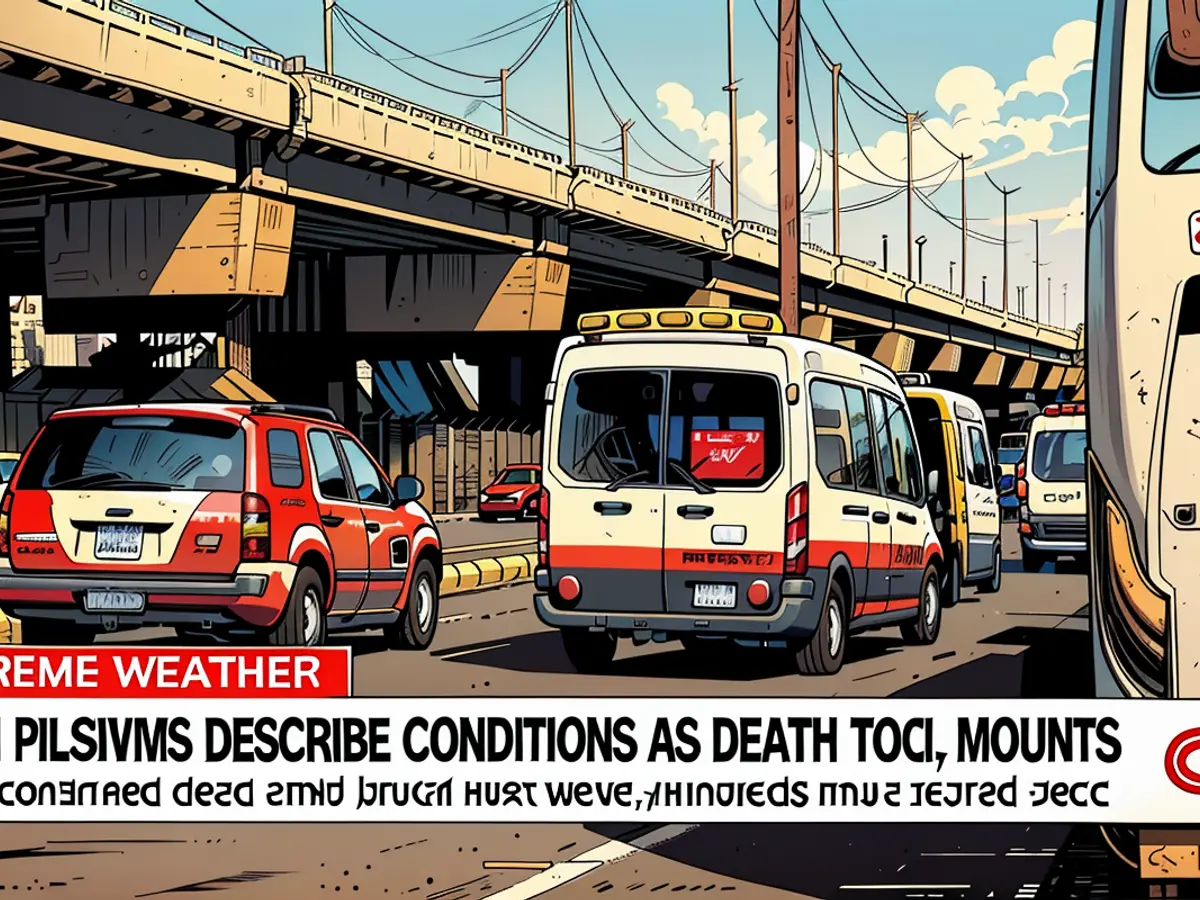
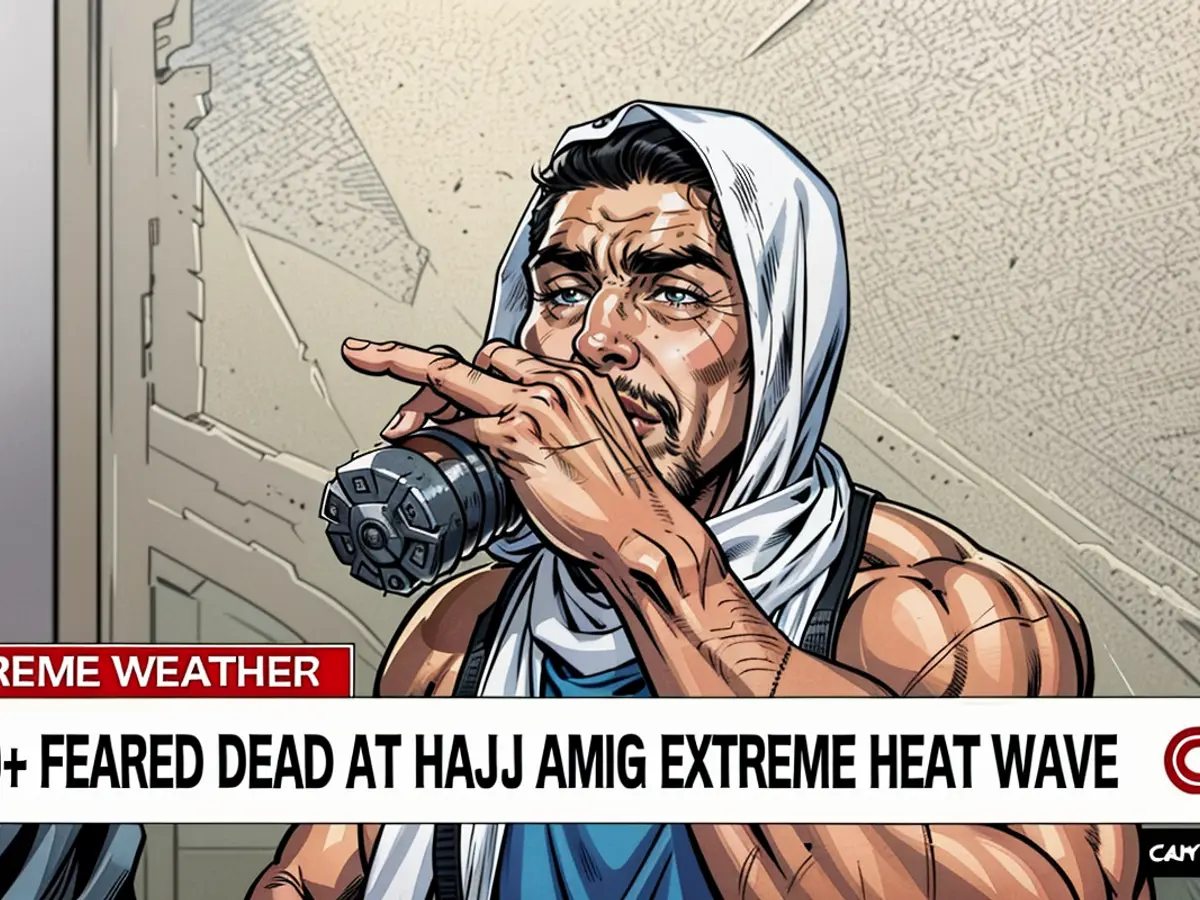
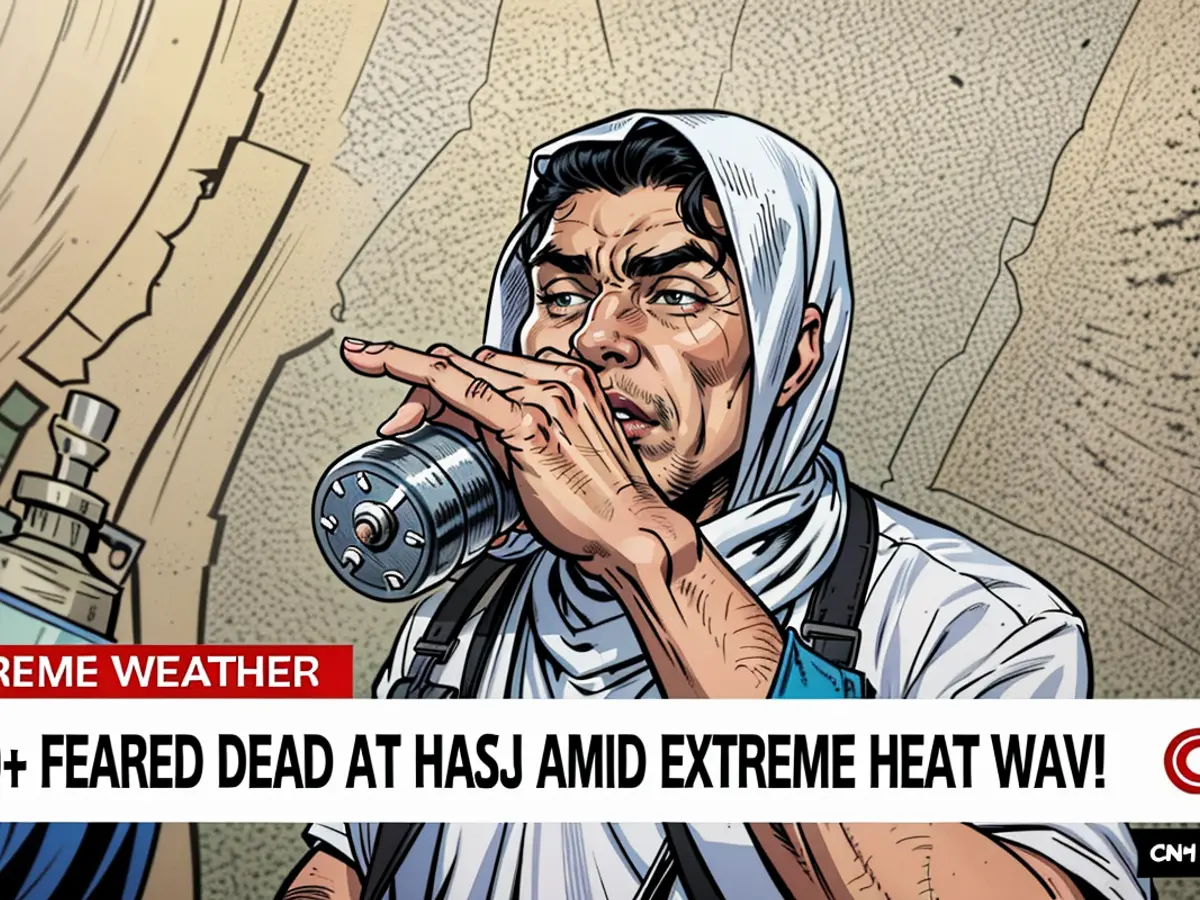
Read also:
Despite the tragedy, Jumartiyah remains hopeful about visiting her father's grave in Mecca during her own Hajj pilgrimage, as many believers view dying and being buried in the holy city as a blessing.
Additionally, Indonesia's Minister of Religious Affairs reported that at least 215 Indonesians lost their lives in this year's Hajj, making Asia one of the regions heavily affected by the heat-related fatalities.
